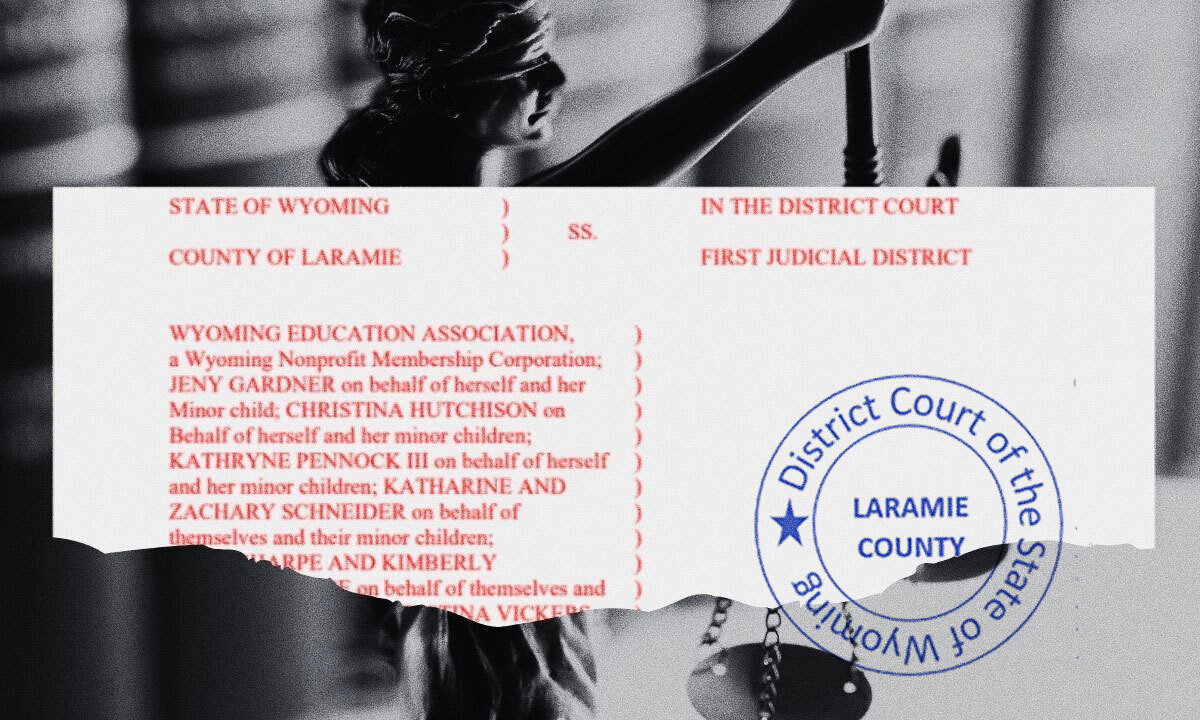Teachers Union Lawsuits in 5 States Challenge Private School Vouchers
Judges in Wyoming, Utah strike down programs — at least for now. South Carolina's retooled after court rules it unconstitutional.

Get stories like this delivered straight to your inbox. Sign up for The 74 Newsletter
Across the country, teachers unions have been challenging the constitutionality of their states’ private school voucher programs in court. And in at least two cases, they’ve won.
Since 2022, when the Supreme Court allowed Maine private schools to receive public funds, at least five lawsuits have been filed by teachers unions, in Wyoming, Utah, Montana, Missouri and South Carolina. Additional legal challenges have been mounted by advocacy groups and parent organizations.
The Supreme Court’s Carson v. Makin ruling, combined with growing interest among parents in alternatives to traditional public schools post-COVID, has fueled the rise of voucher programs and led to a tug-of-war in state courts between public educators and school choice advocates.
Heading into the 2025 legislative session, at least 33 states had some form of private school choice, according to the Georgetown University think tank FutureEd. Most union lawsuits have focused on voucher programs, in which public dollars pay for children to attend private schools — including religious schools — and cover other education-related expenses such as homeschooling.
In Wyoming and Utah, judges ruled in favor of the unions — at least for now. In South Carolina, the program was retooled after a court declared its previous version unconstitutional.
The Wyoming Education Association, which represents roughly 6,000 public school teachers, landed a win in July after District Court Judge Peter Froelicher granted a preliminary injunction against the state’s universal voucher program. The union and nine parents had sued the state in June on grounds that the Steamboat Legacy Scholarship Act is unconstitutional because it violates a state regulation that it must provide a “uniform system of public instruction.”
The union decided to sue after lawmakers made the voucher program universal this spring. It was originally created with a family income cap of 250% of the federal poverty level.
“No income guidelines, in essence, means that you could be someone in Jackson who owns an $18 million property, and the state’s giving you money,” said union President Kim Ame. “Our constitution clearly says that we cannot give public money to private entities, so that’s why we challenged that.”
The injunction temporarily stops the distribution of $7,000 scholarships — which are funded from a state appropriation of $30 million — until the court determines the program’s constitutionality. The state has since filed an appeal to the Wyoming Supreme Court.
“I am disheartened at the court’s written order granting the WEA’s injunction. As one of nearly 4,000 Wyoming families, you have had your lives unnecessarily upended through no fault of your own,” Megan Degenfelder, state superintendent of public instruction, wrote in a July statement to parents.
The case is similar to the one in Utah, where a judge ruled a $100 million voucher program unconstitutional in April, following a lawsuit by the state teachers union.
The Utah Education Association sued the state last year, arguing the Utah Fits All Scholarship Program violates the state constitution by diverting tax money to private schools that aren’t free, open to all students and supervised by the state board of education. The Utah Supreme Court is set to consider an appeal later this year.
Lawsuits in other states are still working their way through the courts.
In July, the Montana Federation of Public Employees, which represents the state’s public school teachers, joined a lawsuit challenging the constitutionality of the statewide voucher program that funds private education expenses for special education students.
“Even voucher programs like [this one] that are targeted to students with disabilities deprive them of crucial legal protections and educational resources,” the plaintiffs said in a legal brief.
In Missouri, the state teachers union is suing over the MOScholars program, which started as a tax credit scholarship in 2021. It currently relies on nonprofits to collect donations that are turned into scholarships. Donors can receive a tax credit amounting to 100% of their contribution, but it can’t exceed more than half of their state tax liability.
This year, Missouri Gov. Mike Kehoe dedicated $50 million in taxpayer dollars for the scholarships and $1 million for program marketing, according to the suit. The Missouri National Education Association, which has 28,000 members, sued in June in an effort to block the appropriation.
“The General Assembly has far overstepped its authority and violated five provisions of the Missouri Constitution by using an appropriations bill to construct out of whole cloth a scheme to divert general revenues to what are essentially vouchers for the payment of private school tuition for elementary and secondary school students,” wrote Loretta Haggard, the union’s attorney, in the suit.
On July 30, EdChoice Legal Advocates — part of a national nonprofit that advocates for school choice — filed a motion to join the suit as defendants. Thomas Fisher, litigation director, said in a press release that the program helps Missouri families afford an education that fits their children’s needs.
“The recent expansion of the program is constitutional and will expand education freedom for low-income families and students with learning differences,” he said.
In South Carolina, the state Supreme Court ruled in 2024 that its Education Trust Fund Scholarship Program was unconstitutional following a lawsuit from the state teachers union, parents and the NAACP. The program resumed this year after lawmakers revised it to funnel money from the lottery system instead of the general fund.
Unions have also been involved in school choice lawsuits in Alaska and Wisconsin. In 2023, National Education Association Alaska funded a suit over a state system that sent cash payments to the parents of homeschool students. That same year, Wisconsin’s largest teachers union asked the state Supreme Court to hear its case challenging the constitutionality of the statewide voucher program, but the request was denied.
Get stories like these delivered straight to your inbox. Sign up for The 74 Newsletter

;)
